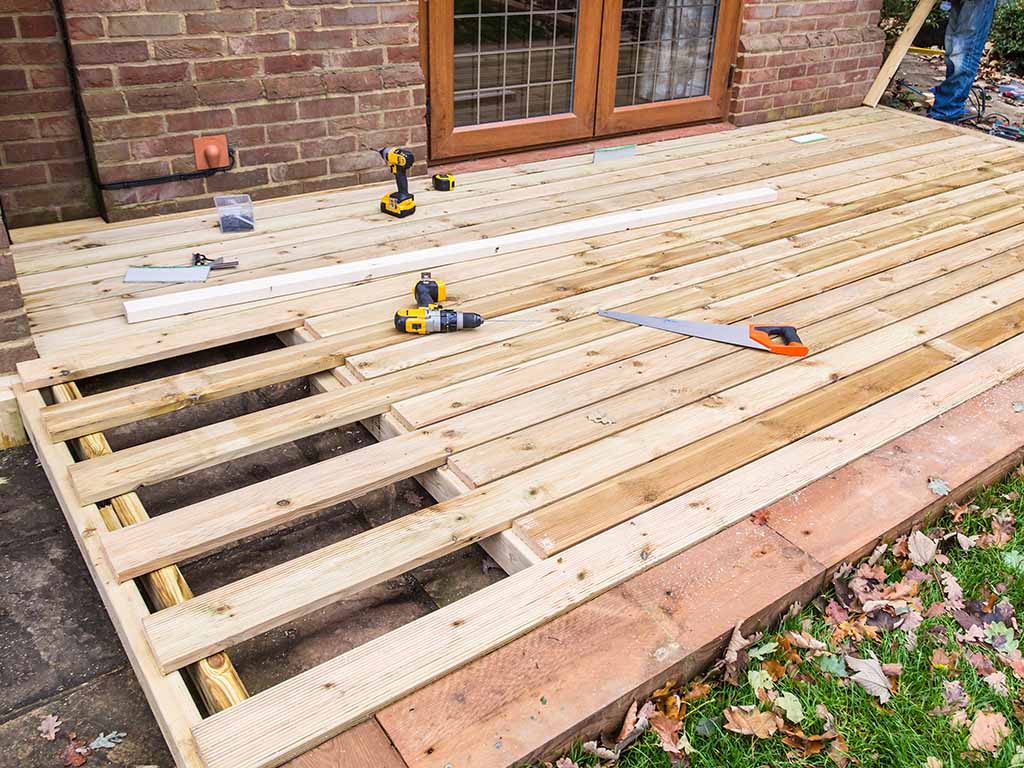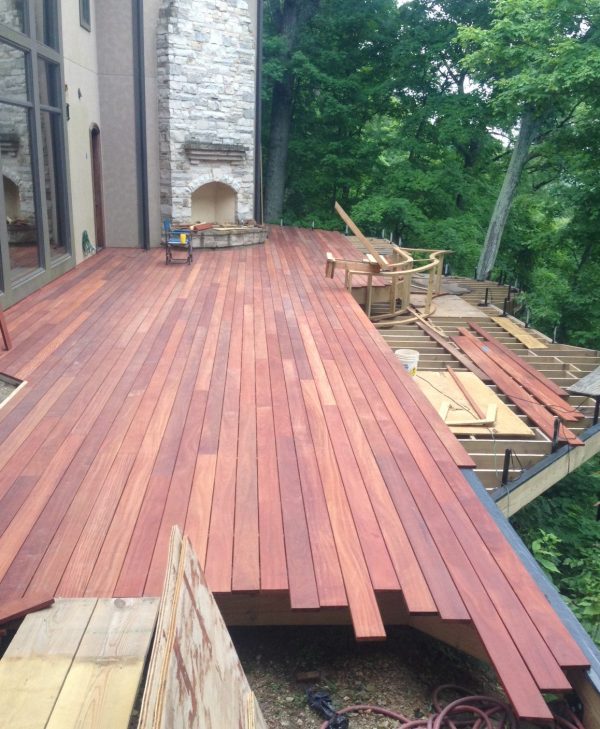Hiring an skilled deck installer Austin is the first step toward creating your ideal outdoor space.
Hiring an skilled deck installer Austin is the first step toward creating your ideal outdoor space.
Blog Article
Just how to Choose the Right Materials for Your Deck Setup Project
Choosing the proper materials for your deck installation project can appear daunting. The trick is to stabilize your budget, design choices, and lifestyle requires to develop a deck that will certainly enhance your outdoor area for years to come.
Recognizing the Different Sorts Of Deck Materials
When starting a deck installation project, the selection of materials becomes an essential decision. Different options are readily available, each with unique attributes and aesthetic allure. Conventional timber, as an example, uses a timeless, all-natural look and is typically much more economical. Nonetheless, it can warp with time and requires routine upkeep. Compound products, on the other hand, are a mix of wood and plastic, offering sturdiness and resistance to weather components. They demand much less upkeep contrasted to timber but are normally more costly. Another option is plastic, which is virtually maintenance-free and immune to parasites and rot, albeit much less natural-looking. By understanding these distinctions, homeowners can make an extra educated choice on the most suitable deck product for their particular demands.
Assessing the Resilience and Upkeep Demands of Deck Materials
Analyzing the toughness and upkeep demands of deck products is an important action in deck setup. Resilience involves the material's capacity to stand up to rough weather, damage, and its durability. Cedar and redwood are naturally resistant to rot and insects, making them long lasting selections. On the other hand, pressure-treated timber, while long lasting, might require even more upkeep as a result of its susceptibility to fracturing and warping.
Comprehending upkeep requirements is similarly vital. Some products call for routine sealing or discoloring to preserve their look and withstand moisture damages, while others, like composite decking, demand much less upkeep. By assessing these factors, one can choose the most suitable outdoor decking material, making certain an equilibrium in between resilience, maintenance requirements, and visual allure.
Cost Analysis: Comparing Wood and Compound Decking
Although price may at first seem like an additional issue, it is a considerable variable when contrasting wood and composite outdoor decking. On the other hand, composite outdoor decking, while costlier initially, requires much less upkeep, possibly minimizing long-term costs. Possible deck owners need to consider their budget and determination to keep their decks when determining in between timber and composite decking.
Looks and Layout Flexibility of Decking Products
All-natural wood outdoor decking gives a classic, classic look, while composite products offer a large array of colors and textures to match varied tastes and designs. Compound materials, while less adaptable in layout, are still adaptable enough for many deck styles. These aspects, as a result, are vital components in the selection of decking product.
Ecological Effect of Decking Products
When selecting decking materials, one need to consider not just aesthetic appeals and toughness, yet likewise the ecological influence. It is very important to analyze the sustainability of materials and explore recycled decking choices. Furthermore, recognizing the possible effect on regional environments will make certain an extra environmentally responsible choice.
Assessing Product Sustainability
In the world of deck building, analyzing product sustainability is a critical action. This involves evaluating the ecological impact of each possible product, thinking about factors such as the power required for its production, its carbon footprint, and its end-of-life disposal or recycling alternatives. For instance, wood is a renewable resource, however unsustainable logging practices can browse around these guys lead to deforestation. Additionally, composite decking products commonly integrate timber and plastic, minimizing the need for brand-new hardwood but enhancing dependence on fossil fuels. Light weight aluminum and various other steels might be extra durable and recyclable, however their extraction and handling can be energy-intensive. Therefore, the option of decking materials ought to balance functionality, aesthetics, price, and sustainability to make sure an accountable and lasting installment.
Recycled Outdoor Decking Options

Composite decking is specifically popular due to its longevity and convenience of maintenance. Recycled plastic outdoor decking, on the other hand, is extremely durable and needs very little upkeep.

Effect On Local Communities
While the advantages of utilizing recycled materials for decking can not be overemphasized, it's similarly important to consider the more comprehensive ecological effects of these choices. The removal, processing, and transport of materials can profoundly influence neighborhood ecosystems. Deforestation for lumber outdoor decking adds to environment loss and climate adjustment. Even the manufacturing of composite materials can release hazardous exhausts. Alternatively, making use of recycled or sustainably sourced have a peek at these guys products can aid minimize these impacts. Thinking about the lifespan of products can decrease ecological effect; longer-lasting options call for less constant substitute, therefore saving resources. Proper disposal of old outdoor decking is crucial to reducing landfill this hyperlink waste. Basically, an eco-conscious deck task demands careful material choice, sustainable sourcing, and accountable disposal.
Making Your Last Choice: Tips for Selecting the very best Deck Products
As the short article shifts into the subtopic of "Making Your Decision: Tips for Picking the most effective Deck Products", it is essential to comprehend the selection of deck products available. Striking an equilibrium between toughness and visual appeal is important in this selection procedure. The adhering to discussion will certainly assist viewers in making an informed selection based upon these key factors to consider.
Understanding Different Deck Products
The job of picking the ideal materials for your deck setup can appear daunting due to the large array of options available. However, understanding the various products can simplify this process. Timber is a popular selection, using a timeless aesthetic and cost. Sorts of timber used consist of pressure-treated lumber, cedar, and redwood. Composite products, made from a mix of wood and plastic, are low-maintenance and resistant to rot and bugs. Vinyl or PVC decks are also much more resilient and require less upkeep than composite materials, yet they can look less all-natural. Aluminum decks are strong, lightweight, and resistant to rot, but they are also the most costly option. Each product has its very own benefits and disadvantages, making it important to consider your certain demands before making a decision.
Durability vs. Looks Equilibrium
Balancing durability with visual appeals can be a challenge when choosing deck materials - deck installation austin tx. High-traffic areas might necessitate long lasting products like composite decking, which stands up to wear and tear yet may do not have the all-natural beauty of wood. Home owners require to strike a balance, taking into consideration both the deck's useful demands and their aesthetic choices.
Final thought
In conclusion, picking the best materials for your deck installment task calls for mindful factor to consider of aspects such as durability, upkeep, cost, appearances, and ecological impact. Whether you choose traditional wood or composite products, your selection must line up with your budget, design preferences, and lifestyle. Inevitably, the most effective outdoor decking material is one that boosts your outdoor area and offers pleasure for many years ahead.
Report this page